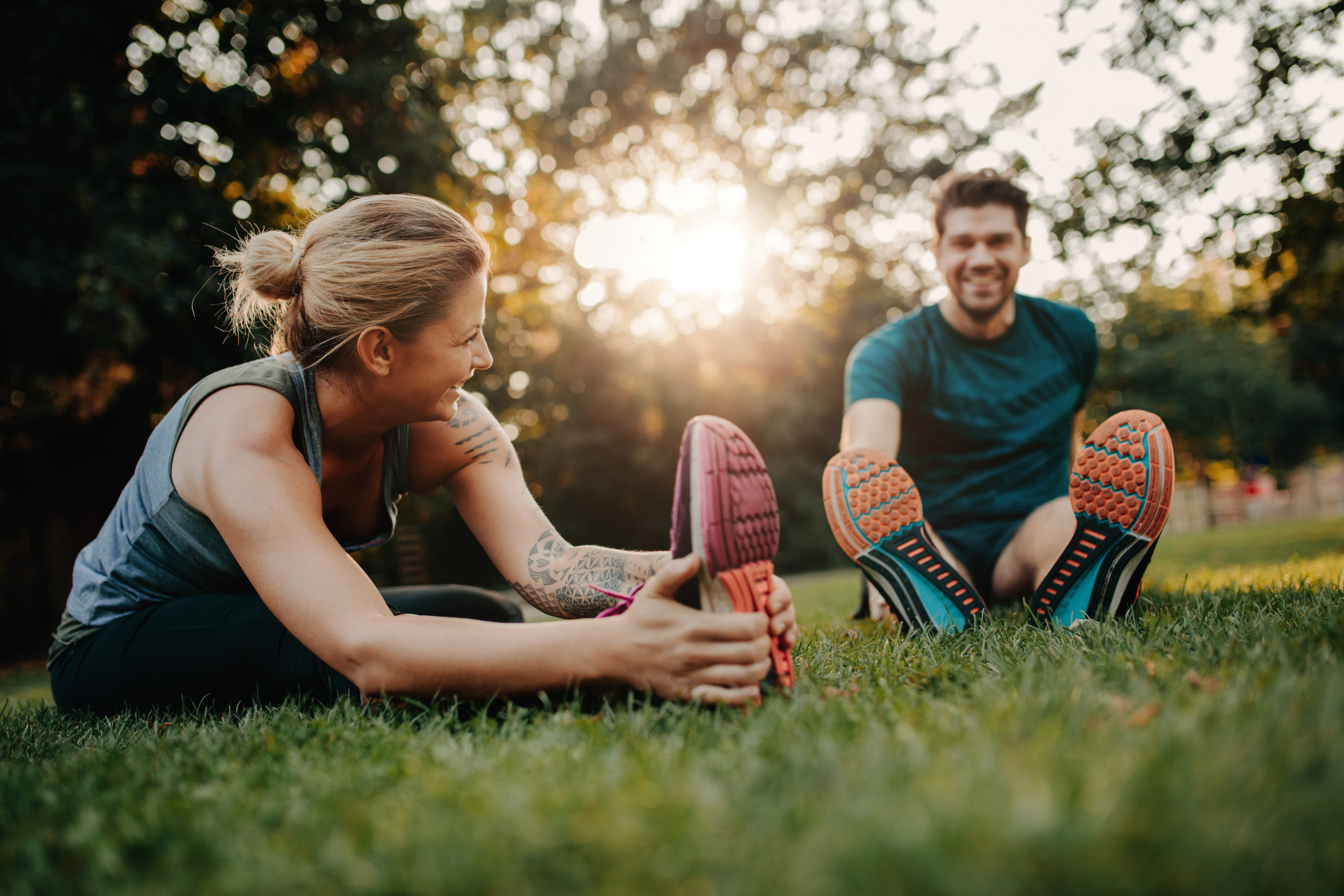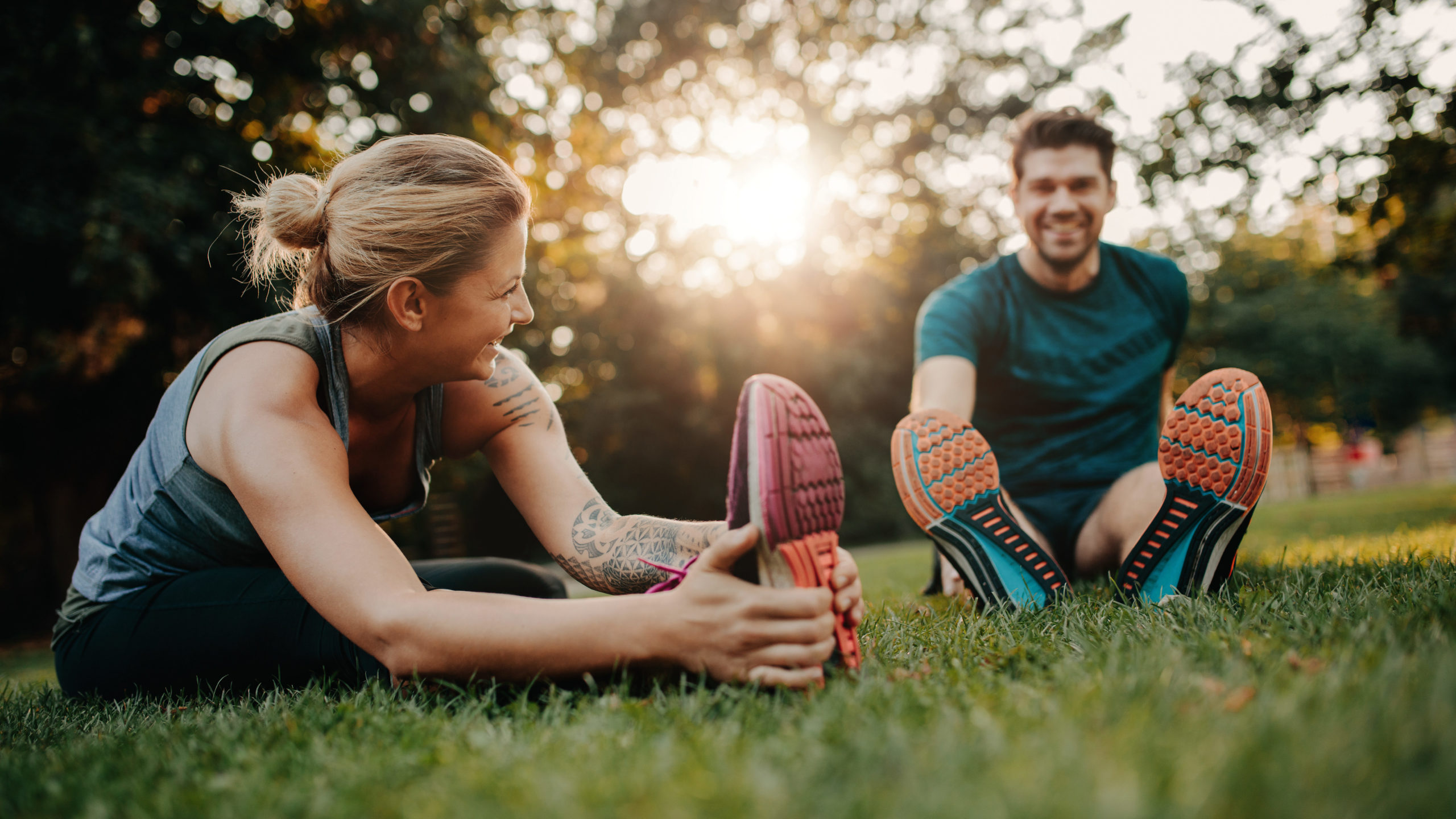

When we think of Australia’s exercise recommendations of at least 2.5 hours of moderate exercise per week alongside two strength training sessions, many of us will immediately link this to helping maintain our physical and cardiovascular health, managing our weight, and preventing disease or conditions like diabetes.
Thanks to social media and the marketing tactics of the fitness and beauty industry, the view on exercise has been skewed to be a ‘must do’ chore or a punishment for eating tasty foods – a tick-list item that is necessary to achieve an “ideal” body. But there is so much more to exercise than what we see in advertisements and viral videos – and don’t just take our word for it – this is the exact theme of this year’s national Exercise Right Week campaign, which is aiming to change the unhealthy relationship with exercise that this dialogue in the media is creating, showing you that the real additional benefits of exercise have nothing to do with the number on a scale or the amount of kilometres on a tracking app.
So, in support of this fantastic campaign, here are five incredible benefits of exercise that our practitioners want you to know that have nothing to do with the way you look, and everything to do with the way you feel.
Exercise Makes You Happy
Yes, it’s true – exercise really does make you happier. According to a study by the University of Michigan, more exercise leads to more happiness – at all ages – and even small bouts of exercise have a positive effect. When you exercise, it triggers the release of endorphins – your happy hormones – but it’s more than just endorphins that help to lift your mood – dopamine, adrenaline, endocannabinoid and myokine, which your body creates when your muscles contract, are all chemicals that get released into the brain when you exercise, helping to make you feel happy, confident and capable., As an added bonus, those hormones even reduce our sensitivity to pain.,
Interestingly, there is a flow on effect of the happiness exercise brings into work and other aspects of life. People who are happier outside of work report a greater perception of happiness in work. Driving happiness through physical activity impacts your sense of joy and contentment across all aspects of your life.
Being physically active also improves your sleep quality, which can play a large role in your mental health. Sleep deprivation makes us more sensitive to stressful stimuli and events, and is strongly linked to the ability to cope with emotional stress in daily life. Exercise increases the amount of deep sleep where the brain and body revitalise.
The takeaway: engaging in regular physical activity can increase your sense of happiness and satisfaction with life.
Exercise Helps Take The Load Off Your Shoulders
Exercise is one of the most powerful ways to boost your mental health, and give you that feeling of load coming off your shoulders. Those endorphins we mentioned support your brain in reducing stress and anxiety, as well as protecting against depression. Exercise also decreases inflammation, and evidence suggests that inflammatory conditions contribute to mood disorders and poor mental health.
For those living with mental health conditions, exercise can also be an important part of your management plan. Exercise combined with medications significantly improves clinical global outcomes in depression. PTSD & schizophrenic sufferers also report reductions in severity of symptoms when they’re physically active.
Exercise Helps You Think
Exercise not only plays a role in our brains in terms of happiness and mental health, but has also been found to have positive effects on our brain health. More active individuals have better attention span and are able to process information more quickly than their less active counterparts.
This positive effect exercise can have on your concentration has been found to benefit, not only the general population, but also those with concentration difficulties such as individuals with ADHD. Those with ADHD who engage in frequent physical activity have improvements in their concentration and attention by as much as 30%.
Put simply: exercise helps your brain to function better, so you can be more alert and attentive – whether you’re at home with the family, or at your 9-5 workplace.
Exercise Helps You Bond With Others
Exercise can improve your social life, with research showing that exercise and the social connections it supports have a reciprocal relationship. Exercising with a friend or family member strengthens the social bonds between you. In turn, this can lead to an increased motivation to exercise, greater enjoyment of that exercise when you do it, and can even enhance your performance.,, Next time you’re struggling to maintain a regular exercise schedule, or feeling unmotivated, consider finding a friend or family member to exercise with.
Exercise that involves working together with others, such as team sports, spotting someone lifting weights, or doing paired interval training, can also improve your interpersonal skills, enhancing your cooperation, collaboration and communication abilities. These skills can be translated into many aspects of your life, benefitting you in the workplace, and at home.
Exercises Helps Improve Posture And Balance
While we all know the benefits of exercise for our strength, there are also important benefits to our posture and balance that often go forgotten or unappreciated. Physical activity strengthens our postural muscles,, enhancing balance and helping you to maintain posture throughout the day. Whether you’re a parent chasing after and picking up small children, or an office worker sitting long hours at a desk, your muscles are essential for support and protection.
Want to get started with exercising for the right reasons but aren’t sure where to start? Join one of the free Exercise Right week events near you here.
References
[1] Physical activity and exercise guidelines for all Australians
[2] Exercise and Type 2 Diabetes
[3] A Systematic Review of the Relationship Between Physical Activity and Happiness
[4] 4 ways exercise can make you happier — even if you don’t like to exercise
[5] Exercise-induced myokines in health and metabolic diseases
[6] Does exercise increase or decrease pain?
[6] Spending on doing promotes more moment-to-moment happiness than spending on having
[8] Exercising for mental health instead of weight loss
[10] Measurement of the Effect of Physical Exercise on the Concentration of Individuals with ADHD
[11] Physical Fitness Level Is Related to Attention and Concentration in Adolescents
[12] Social relationships and physical activity in health club members
[13] Social Bonds and Exercise: Evidence for a Reciprocal Relationship
[14] Social Bonds and Exercise: Evidence for a Reciprocal Relationship
[15] Social support for exercise
[16] Core Muscle Activity During Physical Fitness Exercises: A Systematic Review
